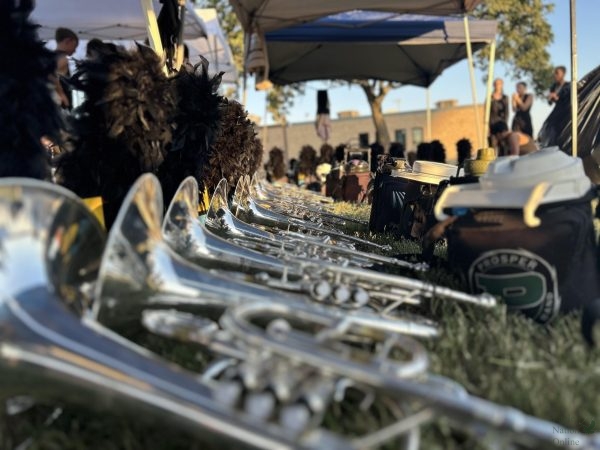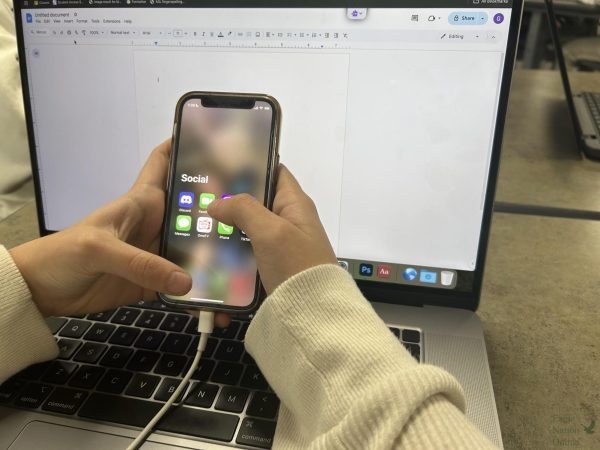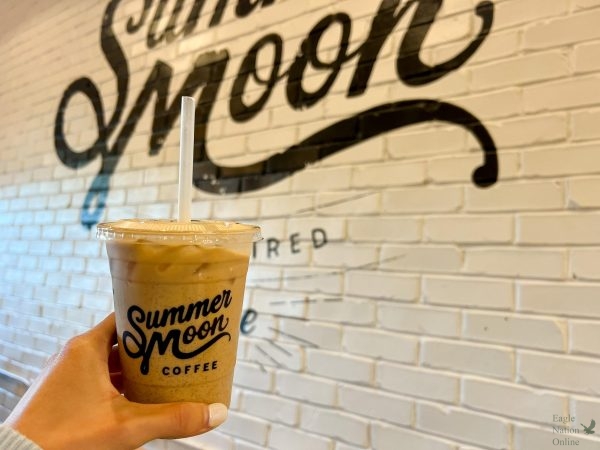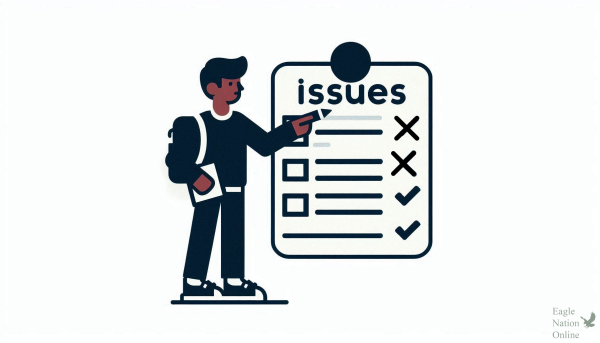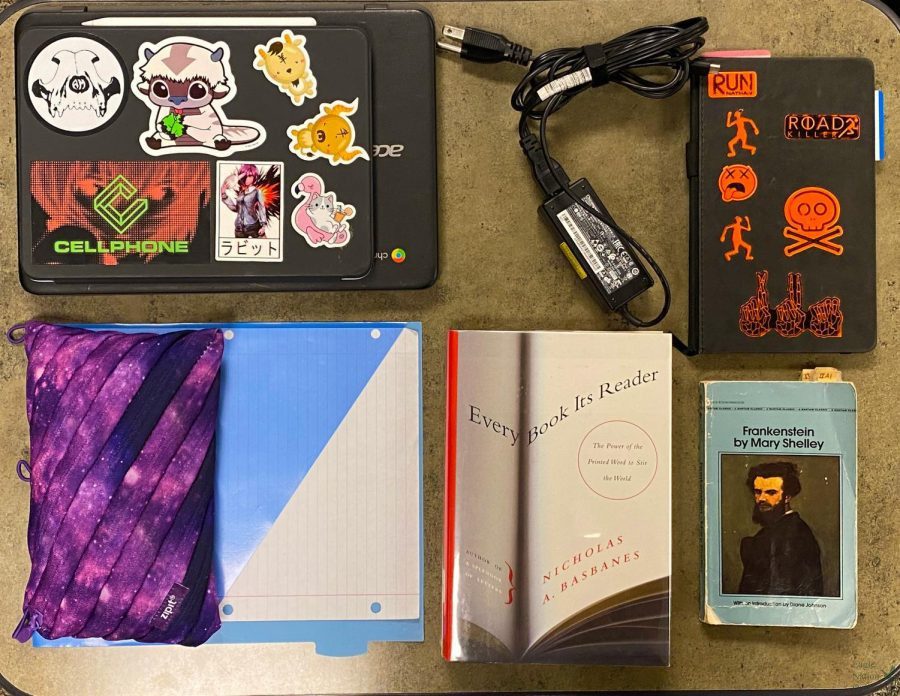Column: Decluttering, organizing produce productivity for student minimalist
Technology and books lay on the desk. This compilation represents everything senior Michael Ramirez uses during school. “It helps to know where everything is,” Ramirez said. “This also keeps my backpack weight down since I always have my backpack with me at all times.”
My definition of minimalism includes a lifestyle that helps me be productive while also making my days easier. I first came across the concept of minimalism from a Netflix documentary years ago, “Minimalism: A Documentary About The Important Things.” At the time, my family presented it to my brother as a joke and to help him see other lifestyles. To no surprise, my brother did not find it too interesting, but the concept both amazed – and scared – me.
Back then, my room had been filled with stuff – from furniture, to toys, to school supplies, to electronic cords. So, finding something that fit my needs had to have been a challenge. My curiosity perked up when I found this lifestyle that required living intentionally and with only the possessions I needed. So I did what any teen my age does, and searched the internet. At the time I hoped to find the answer to if I had to throw out all of my things.
Being a student minimalist has allowed me to be productive, make good financial decisions and set me on a path to financial success.
Like most beginning minimalists, I just started throwing stuff out – anything from useless cords to old toys to old school supplies that I didn’t use. I also emptied out my dresser and gave away old clothes that didn’t fit me. Then I re-organized my closet so that all my clothes fit in my closet. I went through the decluttering phase, then the breaking-the-buying-habit phase, and grew into the “what-now?” phase. In the present day, I still consider myself to be a minimalist. However, minimalism, by my definition, means keeping the objects that make me happy or that bring a sense of accomplishment.
Other minimalists believe that they should only have a certain number of items, or that their houses and living areas need basically to not have anything. But that leads to people getting rid of objects that they enjoy, like instruments or art supplies. Personally, I have minimized my backpack, my bedroom, my bathroom, my closet and my photo files. A common misconception about minimalism happens to be the illusion of getting rid of everything they own. This concept is not true by any means. Minimalism by my definition is about living with intention. By living in this fashion, it allows the person really to think and to make a decision about a purchase, and whether or not they need it just because it could be nice to have if a specific occasion came. Many minimalists have donated or thrown away 80% of their stuff while other minimalists have not thrown away any of their belongings. Personally, I can’t know an exact percentage of my personal belongings that I have thrown away, and I will never know because, to me, this way of living will always be continuous and will always be a part of my life.
As a student minimalist, I have my basic necessities, by carrying my iPad, which I use almost every day, the school-issued Chromebook for class, my bullet journal, one personal book, one school reading book, one folder to carry any loose-leaf papers I have and a little pouch that holds my two pens, a pencil and both of my SD cards for photography. Everything in my backpack has a purpose, and each item fits my needs in a decluttered fashion.
Your donation will support the student journalists of Prosper High School. Your contribution will allow us to purchase equipment and cover our annual website hosting costs.
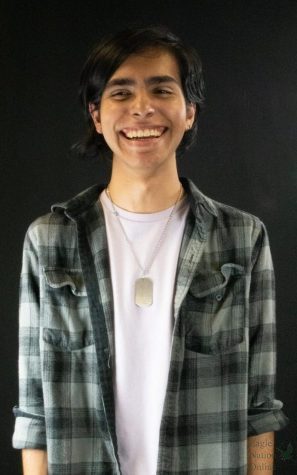


![As he works on his computer, sophomore Mark Carbajal sits in the Eagle Nation Online classroom. He has helped achieve EagleNationOnline.com's 2024-2025 Site Excellence Badge.
"I strived to improve my work, going beyond the requirements of my graphic design assignments," Carbajal said. "[Soon] I had come to the decision that Eagle Nation Online seemed like the most interesting path to me."](https://eaglenationonline.com/wp-content/uploads/2024/11/FinalPhoto-600x400.jpg)
